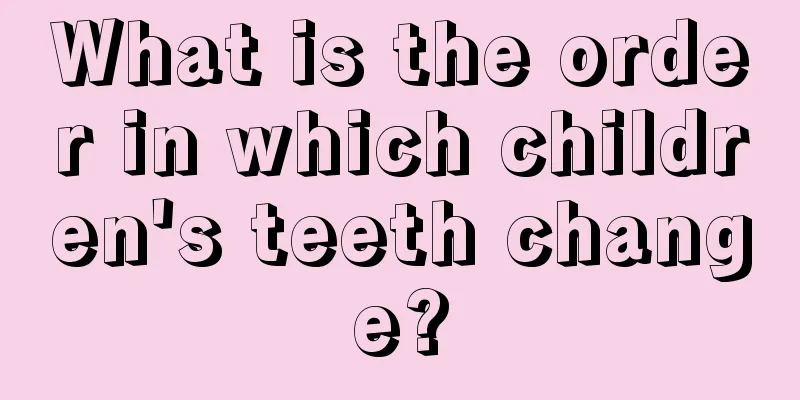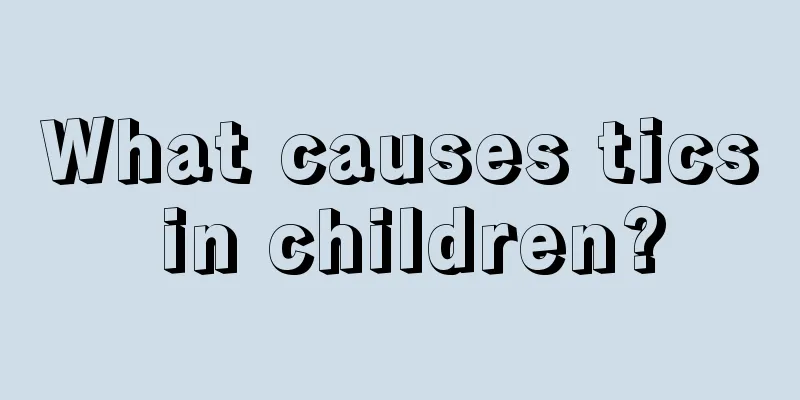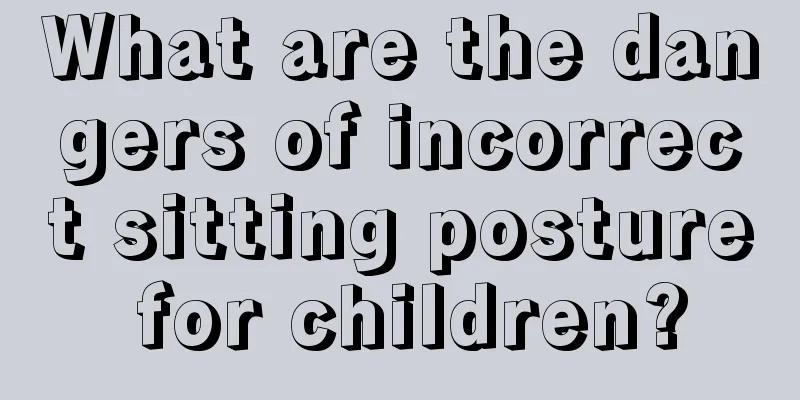What is the order in which children's teeth change?

|
Tooth replacement is a very important stage. Children should pay attention to the order during the process. From the beginning of tooth replacement to around six years old, the first tooth will fall out. It is the first time for a child to lose a tooth in his life, and parents are very excited. At the same time, they should also pay attention to maintenance work, because children will feel uncomfortable at the beginning of the tooth replacement process. Because it is the first time for children to change their teeth, they will be more nervous and keep licking their teeth and the places where the teeth fell out. This will cause the teeth to protrude and the teeth to grow unevenly. If there is itchy gums, parents can teach their children not to lick them, and not to eat hard food, too cold or too hot food, which will affect the health of the teeth. Generally speaking, children's teeth change in a symmetrical manner, with the upper and lower rows of teeth changing first and then the lower ones. The order in which children replace their teeth is : (1) When children are 6-8 years old, they begin to grow their first permanent teeth, the central incisor, and the first molars also gradually grow out; (2) When children reach 8-9 years old, lateral incisors begin to grow; (3) The bicuspids of children aged 10-12 years old begin to grow, and the first bicuspids will grow first, which is next to the lateral teeth; (4) When children are 11-12 years old, the upper and lower canines have gradually grown out; (5) Children aged 12-13 begin to grow second molars; (6) The last third molar, also known as the wisdom tooth, does not begin to grow until the child is 17 years old, and will continue to grow until the age of 21, which varies from person to person. Is it good for children to change their teeth too early? Generally, children lose their first tooth between the ages of 6 and 7. Is it good for children to change their teeth too early? Premature tooth replacement is usually caused by trauma to the child's teeth, such as tooth bumps; it may also be caused by certain oral diseases, such as tooth inflammation, caries, etc. Gingivitis is relatively common among children, but it is very rare for periodontal disease to cause tooth bone damage, so mothers need to know the causes of premature loss of deciduous teeth in order to protect the remaining deciduous teeth. Because it lays a good foundation for the normal growth of permanent teeth. Early diagnosis helps doctors take effective measures to ensure that permanent teeth can erupt and align normally. Therefore, parents must be vigilant about their children's tooth replacement time and observe their dental conditions diligently. If you find that your child's deciduous teeth fall out prematurely due to caries, trauma, periodontal disease, etc., you should seek medical attention as soon as possible to avoid damage to the bite function and affect the normal development of permanent teeth and maxillofacial area. |
<<: How to prevent tooth decay in children?
>>: Why does the child's belly button protrude?
Recommend
What are the symptoms of calcium deficiency in babies
Babies are very cute angels and the most precious...
What is the reason for the baby's forehead to be cold?
Caring for a baby requires parents to pay great a...
What should I do if my baby teeth are decayed?
Do you have cavities in your deciduous teeth? In ...
Frequent constipation in children
The cause of constipation in adults is related to...
Treatment of nutritional anemia in babies
There are many types of anemia. Most of these ane...
6-year-old baby knee pain
For a 6-year-old baby, when knee pain occurs, it ...
What to do if your child has astigmatism
When children suffer from astigmatism, they often...
Is it okay to trim eyelashes for kids?
In some places, there is a custom that after the ...
How to treat allergic rhinitis in children?
The health status of children is of great concern...
What are the symptoms of infant choking on trachea and lungs?
Infancy is the most important time to pay attenti...
Children with fever and low platelets
Children are the group most susceptible to illnes...
Why does drinking milk powder cause internal heat?
Some children grew up drinking milk powder when t...
What do kids eat for college entrance exams?
In our country, it is better to say that a family...
What are the symptoms of a full-month baby getting angry?
Babies who drink breast milk or eat formula are v...
At what age should children start brushing their teeth?
Brushing teeth can better ensure oral hygiene and...









